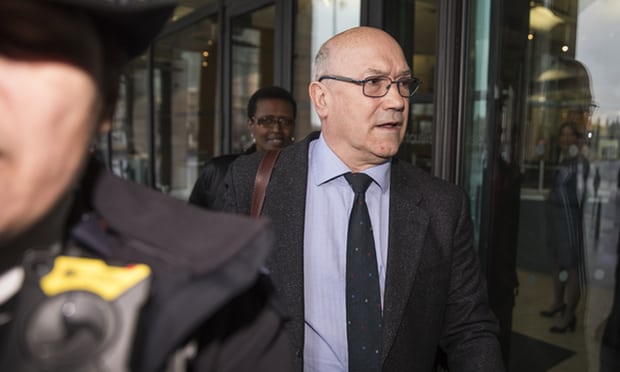Oxfam Chief Steps down after Charity's Sexual Abuse Scandal
By Kevin Rawlinson
Oxfam’s chief executive is to stand down from his position with the charity at the end of the year. Mark Goldring, who took up the post in 2013, was at the head of the organisation when news broke of the by then members of the charity’s staff. Announcing his decision to depart, he said: “Following the very public exposure of Oxfam’s past failings, we have redoubled our efforts to ensure that Oxfam is a safe and respectful place for all who have contact with us. We are now laying strong foundations for recovery. I am personally totally committed to seeing this phase through. “However, what is important in 2019 and beyond is that Oxfam rebuilds and renews in a way that is most relevant for the future and so continues to help as many people as possible around the world build better lives. I think that this journey will best be led by someone bringing fresh vision and energy and making a long-term commitment to see it through.” Oxfam said Goldring had presided over “the biggest annual humanitarian response in its history, encompassing the refugee crisis as well as conflicts including Yemen, Syria and South Sudan”. His time at the head of the charity, it said, was characterised by an increasing focus on tackling global poverty and its causes. It noted that he “faced the test of a lifetime” when that time was punctuated by the emergence into the public eye of the allegations of abuse and cover-up at Oxfam; a period he called the “most intense and challenging of my life”. Oxfam lost thousands of donors in the immediate aftermath of the revelations in the Times newspaper in February that its staff had been found to have sexually exploited victims of the Haiti earthquake before Goldring took charge. That led to many more allegations of abuse coming to light within Oxfam and across the wider aid sector, which faced heavy criticism as it was engulfed by the scandal. At its height, the issue threatened the UK government’s commitment to meeting its legal responsibility to spend 0.7% of its gross national income on foreign aid, Matthew Rycroft, the permanent secretary at the Department for International Development, indicated. “The reputation of the sector, the reputation of aid, the reputation of the 0.7% commitment, all of those I think have been pulled into the mix,” he told MPs in February. Caroline Thomson, the chair of Oxfam, said she had accepted Goldring’s decision to step down “with great sadness and with thanks for his dedication and leadership”. In a statement released on Wednesday, she said: “Having led Oxfam successfully for five years, working with millions of people to help them escape poverty, building the international Oxfam confederation, and raising record levels of income, Mark faced the test of a lifetime managing the crisis which hit us in February and related to events before he joined. “He rose to the immense challenge and his leadership has been invaluable through it. It is testament to his integrity and humility that Mark will see through the next few difficult months.” Advertisement Intense criticism over the abuse led to the resignation of Oxfam’s then deputy chief executive, Penny Lawrence. At that point, Goldring said he would not step down unless the charity’s board lost faith in his leadership. Asked if the announcement of his resignation on Wednesday was related to how he dealt with the crisis, an Oxfam spokeswoman said: “No, it’s absolutely not to do with his handling at all.” Goldring is expected to remain in his post until his successor is found. Since you’re here … … we have a small favour to ask. More people are reading the Guardian than ever but advertising revenues across the media are falling fast. And unlike many news organisations, we haven’t put up a paywall – we want to keep our journalism as open as we can. So you can see why we need to ask for your help. The Guardian’s independent, investigative journalism takes a lot of time, money and hard work to produce. But we do it because we believe our perspective matters – because it might well be your perspective, too. I appreciate there not being a paywall: it is more democratic for the media to be available for all and not a commodity to be purchased by a few. I’m happy to make a contribution so others with less means still have access to information. Thomasine, Sweden If everyone who reads our reporting, who likes it, helps fund it, our future would be much more secure. For as little as ?1, you can support the Guardian – and it only takes a minute. Thank you.
|
.
Any original material on these pages is copyright © BishopAccountability.org 2004. Reproduce freely with attribution.
